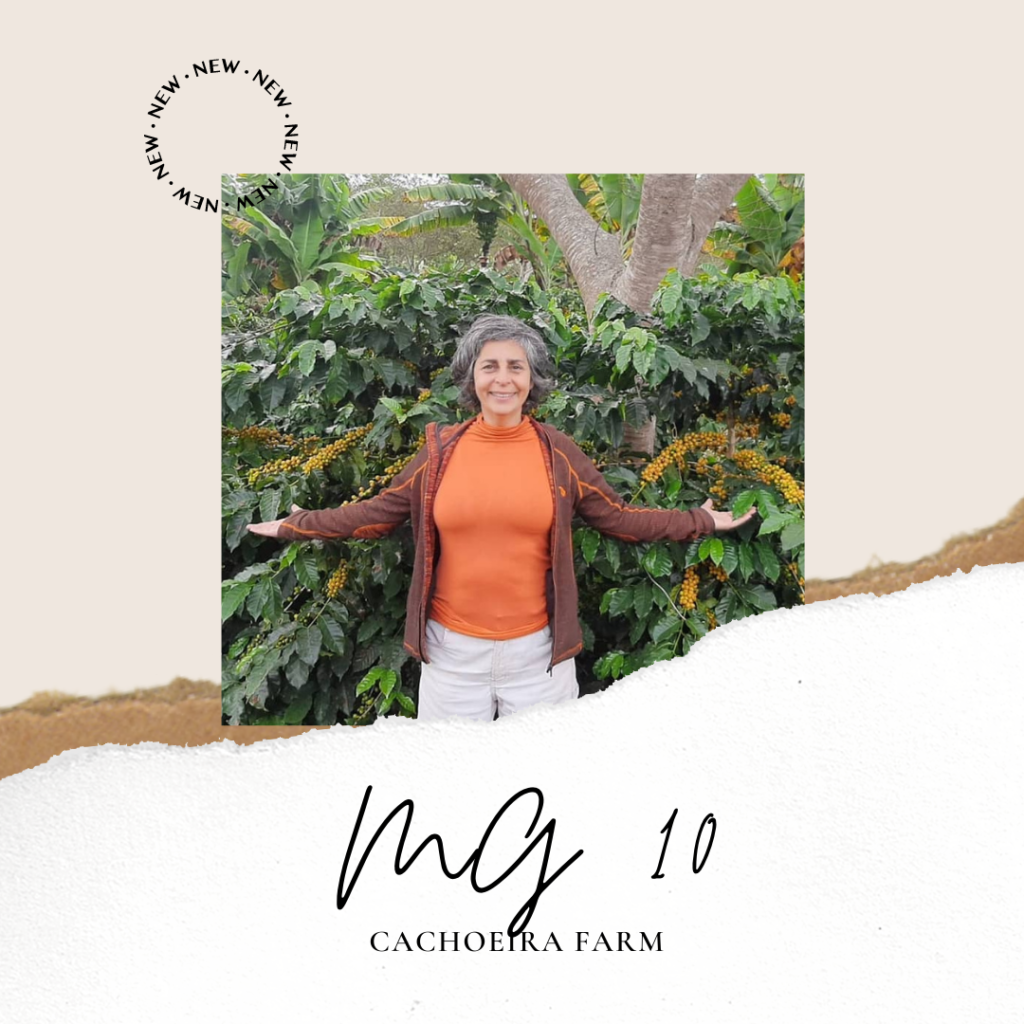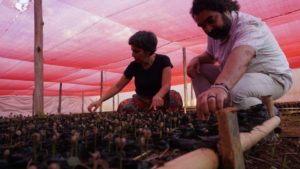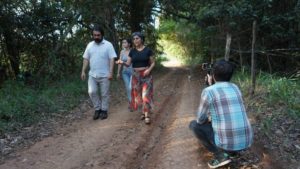
The farm is where coffee is grown since its planting with homeopathy. Its soil is treated only with organic compounds because they take this word very seriously, which today is very fashionable, sustainability!
We’ve learned that being sustainable is much more than meeting established requirements, such as having 20% of your area reforested or complying with labor laws.
The sustainable coffee from Cachoeira farm is certified from Certificaminas SAT_Without Chemists 100% without pesticides or fungicides, these are in transition to organic growth. It takes 3 full years for the coffee to be marketed as organic on the international market. Involvement throughout with the entire supply chain, with customers and partners is very important for the continuation of our work which respects relations with the environment as well as its people. Partnerships like this are important to us and they maintain our mission and its values.
Today there is conventional, organic and sustainable production. Speaking a little more about the sustainability, in this process there is less possible environmental impact but occasionally using a fungicide, only when and where necessary, not on the entire crop.
Firstly, the main difference is made in soil treatment. In this process, the primordial is the living soil. The soil is thought of as a living organism. A soft, fragrant, highly nourished soil, with many plants and roots. Water going down, going to the bottom and with that the fruits will have much more nutrient to grow better and be of a higher quality.

Through the participation of legumes in the soil, oxygenation and nitrogen concentration is increased and the surrounding heat and thermal density are reduced creating a microclimate consisting of a livelier place with a balanced environment where the incidence of disease is lower, due to the fact that predatory pests are present.
There is another very important element here, Agro-forestry, where the originality of the forest is maintained within the plantation, maintaining several natural species together with the plants to be cultivated, integrating the forest with the agriculture.
The idea is that the diversification of plants assists in the growth of the medium as a whole, adding the most special characteristics of each species to make that piece of land more productive and more efficient. In addition to being the greatest defenders of nature, animals and plants coexist in harmony here on this farm. Wasps, which by many are seen as a pest in the coffee plantation, here they are not fought, explain the Fazenda Cachoeira producers. “Because they are an excellent control of “mineiro” larvae, a larvae that feeds off the coffee leaves of the plantation, which can bring great losses in the production of coffee fruit. Thus, every day we have to sharpen our senses and be strict, in order to be able to perceive the fine adjustments, the beautiful dance of ecological balance in a developing a genuinely organic crop. “A real lesson for life,” as mentioned on Instagram and given by the authors.
How can you not fall in love with these stories?
Miriam Aguiar and her husband Roger are the producers responsible for the production of this farm, which has an incredible sustainable conscience. She is also vice-president of the sub-chapter, Campo das Vertentes, of the Iwca (International Women Coffee Alliance), participates in various debates, lectures and conventions, always communicating the love of coffee, the respect for the people and what’s involved in the processes of producing specialty coffees.
Fantastic people, who work their family’s farm, being the 5th generation of the Paiva family in this magnificent job. Their work is based on the 3 pillars of sustainability; economical, social and environmental, of which they are very pleased to work with.Such a special job and with a responsibility to others so great that this is the kind of relationship we want to show the world!
Special coffees are distinguished by their well-defined origin, traceability, superior quality and the differentiation of each species and variety of the plant.
What they say about specialty coffees: “our eyes have seen many things in this universe, from a Second, from a Third, and now from this Fourth Wave of coffee that presents itself. We defend the Special Organic Coffees when they were still pushing Rio passed the uninformed population. We longed for something that was much more than just food. We were at the beginning of this story when it was being elaborated, when the Coffee Hunters came here looking for something Latinized, looking for coffee with birds, original stories. Here We Are… in the Now, United, in Love, in a Floral cup, even before it was understood.”

Regarding the coffee profile from this farm, they have the following varieties: Bourbon, Catiguá and Arara.
A characteristic of their work is the attention given in the post-harvest with drying. Its fruits are dried slowly, preserving a lot of the sugars and developing natural fermentation.
Coffee finalist in the “Florada” contest of the largest roaster in Brazil, Três Corações.
The Cachoeira Farm
City: Santo Antonio do Amparo
Region: Campo das Vertentes/ South of Minas
Altitude: 1000 metros
SCA methodology : 83 pts
Sensorial Notes: Molasses, Plum, Sweet, Long finish, Balanced acidity. Creamy Body
Coffee Process: Natural
Varieties: Catiguá MG2/
Volume per year: 1 thousand bags
Country: Brazil
Certifications: Certifica Minas, IWCA Brasil verified
